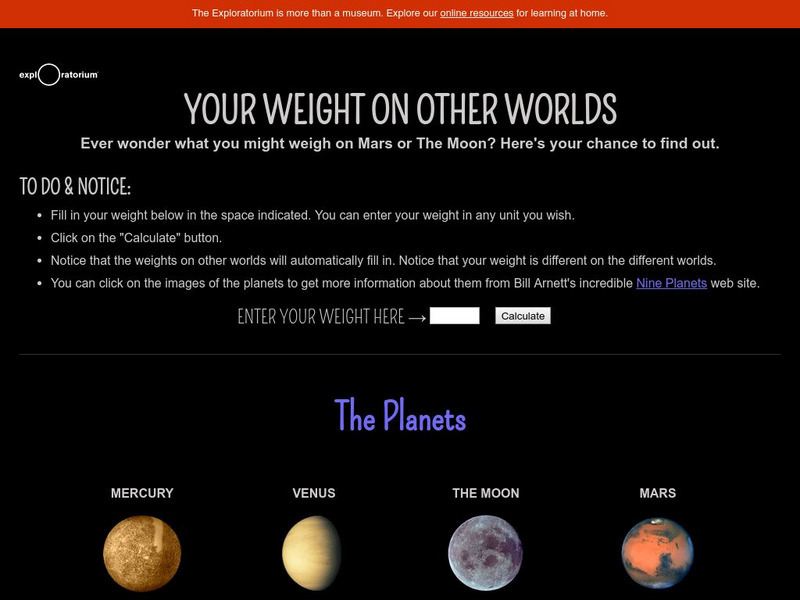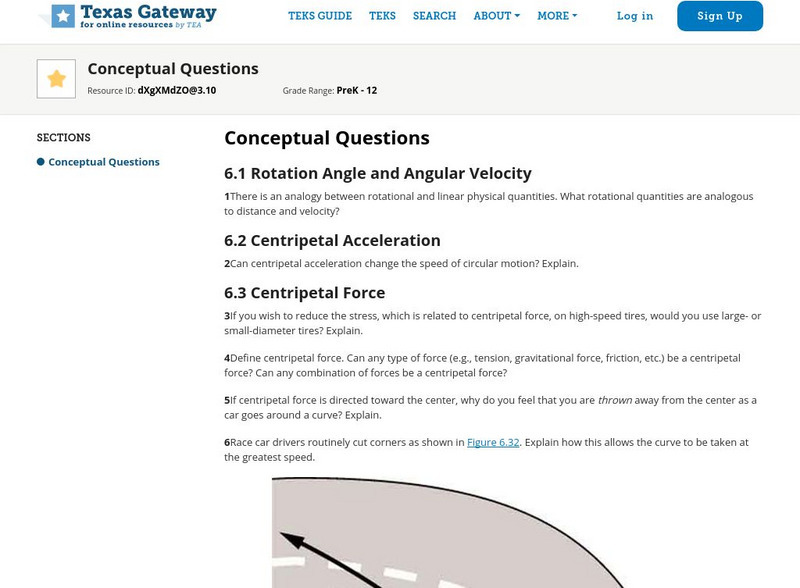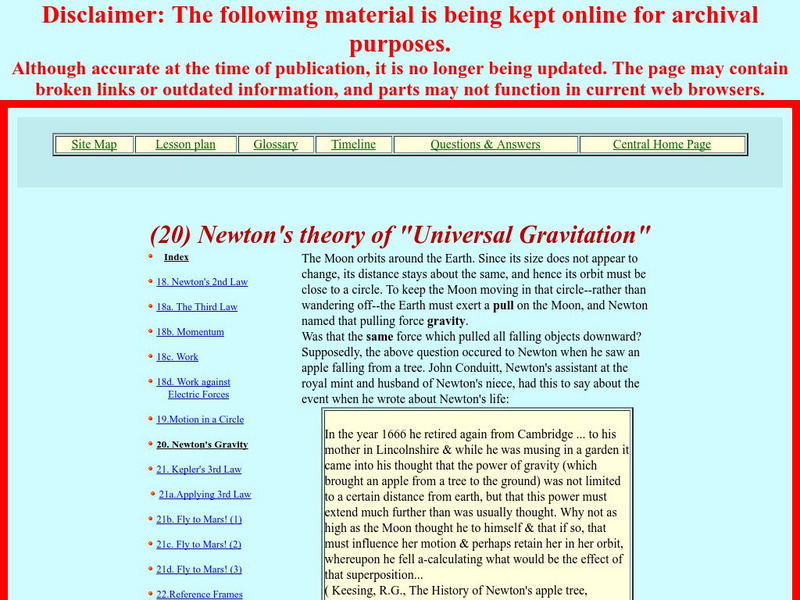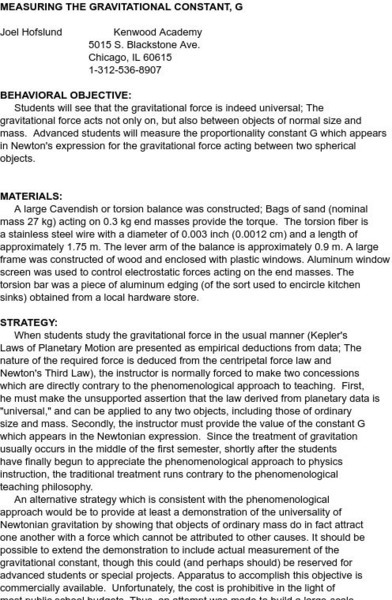OpenStax
Open Stax: Newton's Universal Law of Gravitation
In the following interactive students will explain Earth's gravitational force and describe the gravitational effect of the Moon on Earth. They will discuss weightlessness in space and examine the Cavendish experiment.
Exploratorium
Exploratorium: Your Weight on Other Worlds
From the Exploratorium Museum. Includes an interactive feature in which a visitor enters their weight on earth and has their weight on other planets computed and displayed. Discusses the distinction between mass and weight and describes...
Texas Education Agency
Texas Gateway: Ap Physics: Uniform Circular Motion and Gravitation: Questions
This is a list of 23 questions covering the major concepts of Chapter 6: Uniform Circular Motion and Gravitation from the AP Physics online text.
NASA
Nasa: Newton's Theory of "Universal Gravitation"
This site, which is provided for by NASA, discusses the thinking which led Newton to understand universal gravitation.
Science and Mathematics Initiative for Learning Enhancement (SMILE)
Smile: Measuring the Gravitational Constant, G
A demonstration/lab idea for determining the numerical value of the universal gravitation constant using a torsion balance.
Physics Classroom
The Physics Classroom: Newton's Law of Universal Gravitation
States the equation of Newton's law of universal gravitation. States the value of G and uses the equation to solve problems.
Physics Classroom
The Physics Classroom: Cavendish and the Value of G
A short description of how Cavendish measured the value of G - the universal gravitation constant and supported Newton's theory. Illustrated.
Science4Fun
Science4 Fun: Isaac Newton
Brief biographical sketch of Isaac Newton, famous scientist whose discoveries include the law of gravitation, three laws of motion, reflective telescope, and calculus.







